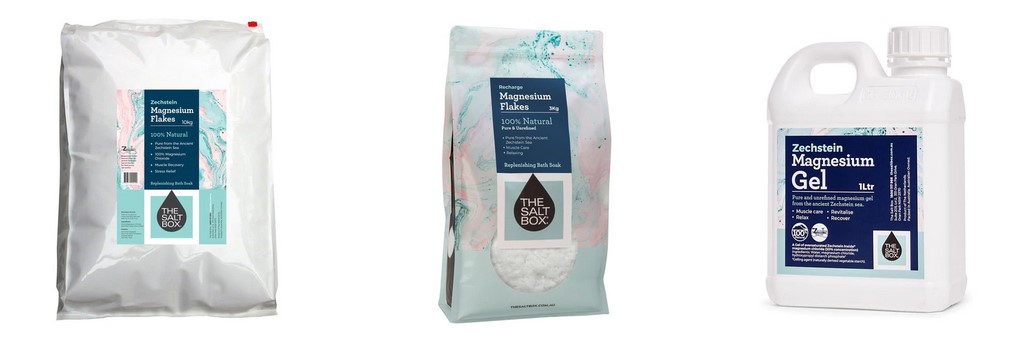Everything You Need to Know About Magnesium Supplements
29th Oct 2019
Your body needs a certain amount of nutrients to stay healthy and function at peak efficiency. A healthy diet with well-balanced meals can supply most of the nutrition the body needs, but sometimes that isn’t enough. One such nutrient, magnesium, is often deficient in our population today. Diet or magnesium tablets alone are not sufficient to increase our absorption of magnesium to a healthy level.
Why Do You Need Magnesium?
Magnesium is an essential mineral, and it supports hundreds of bodily processes. It keeps you healthy and has an impact on how different parts of your body function. The mineral influences metabolic processes, nervous tissue conduction, muscle contraction, protein synthesis, hormone secretion, neuromuscular function, bone health, and so much more.
Scientific evidence suggests that magnesium helps maintain normal blood sugar levels and heart health, and helps regulate person’s energy levels. This shows just how vital magnesium can be. Many food items and beverages contain this mineral, but if you have a magnesium deficiency, you might need supplements.
How Much Magnesium Does a Person Need?
People often overlook hypomagnesemia or magnesium deficiency. It is also an under-diagnosed condition because the symptoms don’t manifest unless the magnesium levels touch critically low levels. Research published by the Australian Bureau of Statistics states that one in three people over the age of two don’t meet their minimum daily intake of magnesium. Here’s a look at how much you need to consume:
- Adult Women under 30 - 310 milligrams of magnesium daily
- Adult Women over 31 - 320 milligrams a daily
- Pregnant women - An additional 40 milligrams a daily
- Adult men under 30 - 400 milligrams per daily
- Adult men over 31 - 420 milligrams per daily
- Children - Between 30 and 410 milligrams daily, based on their age and gender.
Research by WHO and FDA suggests that people get less than 50% of their recommended daily intake of magnesium from regular dietary sources.
Factors That Contribute to Magnesium Deficiency
Several factors aside from food intake, contribute towards magnesium deficiency in humans. Here is a look at some of these factors:
- Stress
- Food, diet, and lifestyle
- Certain medications
- Food processing
- Soil depletion and inorganic fertilizers reduce magnesium levels in produce
Regular tests will reveal whether you have magnesium deficiency well before any symptoms surface. This makes it necessary to maintain proper nutrition levels and take your supplements as recommended by your doctor.
Signs of Magnesium Deficiency
Most signs of deficiency don’t show up until the magnesium levels drop significantly or remain consistently low. It is a good idea to keep an eye on your health and visit the doctor immediately if you notice these symptoms:
- Cramps and muscle twitches
- Fatigue, muscle weakness, and issues with balance
- High blood pressure
- Irregular heartbeat
- Mental degeneration or lack of emotion, delirium, and numbness
- Osteoporosis
- Nausea, vomiting, and poor appetite
Magnesium deficiency is more prevalent in those who consume excessive alcohol or people with celiac disease, diabetes, kidney problems, or chronic digestive issues. These conditions affect the body’s ability to absorb magnesium from food. It means individuals that have low magnesium levels need to consume supplements to ensure the nutrient enters their system directly.
Long-Term Health Issues that Magnesium Deficiency Can Cause
Prolonged untreated magnesium deficiency can cause a host of health problems. Chronic inflammation and calcification are just the start; these lead to heightened pain perception, accelerated aging, and chronic diseases like:
- Alzheimer’s
- Auto-immune diseases
- Cardio-vascular disease
- Cancer
- Diabetes
- Depression and other mental health issues
- Stroke
Magnesium deficiency can increase the risk factor for these conditions which makes it necessary to consume the mineral in the right amounts.
How to Improve Magnesium Levels in the Body
Rebuilding magnesium levels in the body can be challenging because high doses of it can cause problems like diarrhoea. The combination of a diet rich in magnesium, oral supplements and transdermal supplements without causing digestive issues:
1. Add Magnesium Rich Foods To Your Diet
Beans, legumes, nuts, and vegetables are always a great addition to your diet, but they’re especially beneficial if you have low magnesium. Some of the most popular food items with high magnesium levels include:
- Peanuts – 168 mg per 100 grams
- Pumpkin seeds – 262 mg per 100 grams
- Almonds – 270 mg per 100 grams
- Dark chocolate – 176 mg per 100 grams
- Popcorn – 151 mg per 100 grams
You can add items like oats, coffee, cashew, flaxseeds, sunflower seeds, hazelnuts, cocoa, and chia seeds to your diet to improve your magnesium intake as well.
2. Oral Supplements
Oral supplements, such as magnesium tablets, are the most common method to rebuild nutrient levels in the body. You need a bioavailable form of magnesium citrate as a supplement.
3. Transdermal Supplements
It is also possible to absorb the mineral through the skin by taking a magnesium chloride bath or using magnesium oil on your skin. This is a great method as it bypasses the digestive system and can be very effective. With the Zechstein Magnesium Sprays you can receive 100mg elemental magnesium per 1ml or approximately 6 sprays.
It is a good idea to use a combination of methods and steadily build up the levels.


